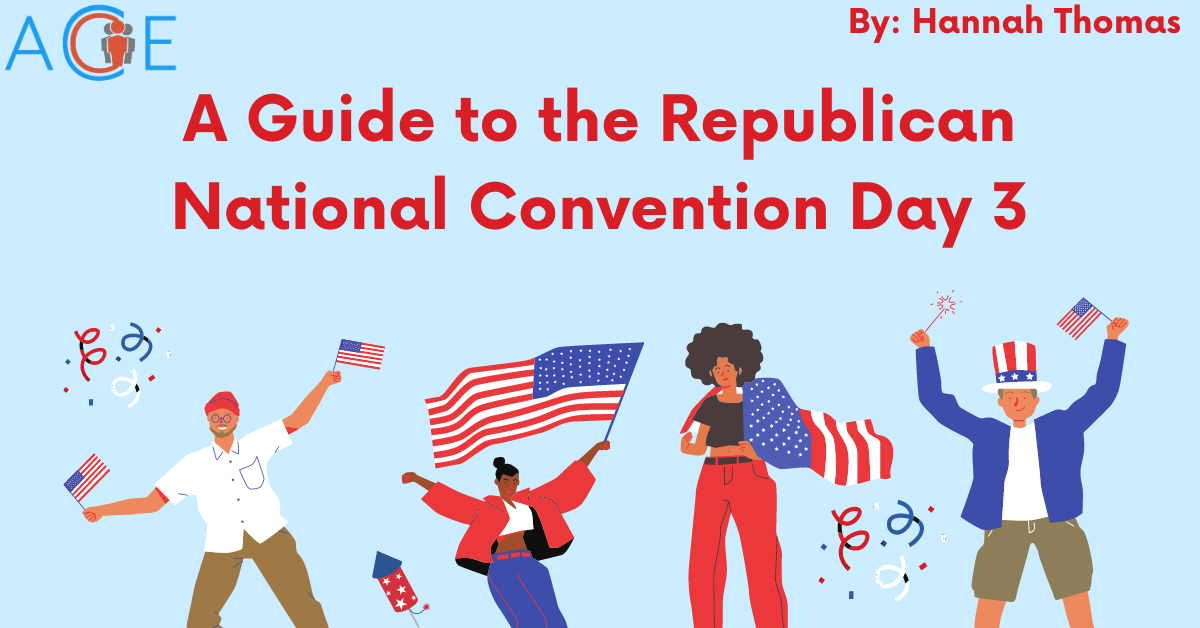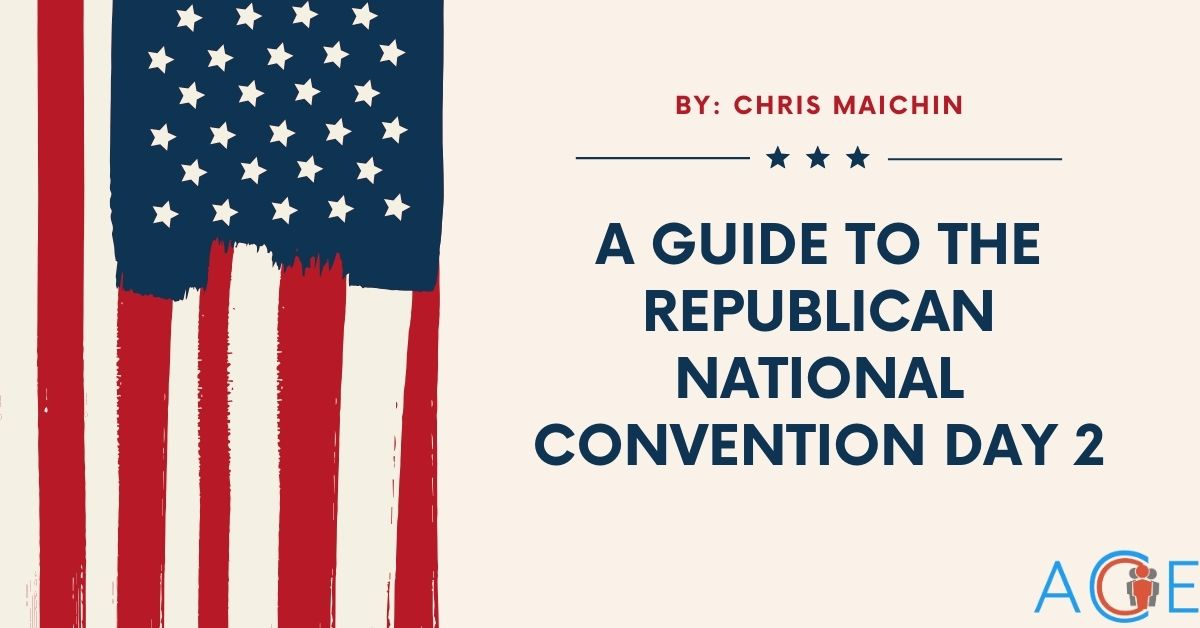Day three of the RNC convention featured speeches from Texas Governor Greg Abbott and the newly announced vice presidential candidate, J.D. Trump. These speeches shared several common themes, including concerns about national security, border control, energy policies, and the current administration’s approach. This event marked the first public appearance of the newly announced vice presidential candidate, J.D Vance, and his wife, Usha. Below is a summary of key points from some of the speakers, presented in a non-partisan manner.
Jim and Sue Colton – Arizona Residents
Jim, a fifth-generation rancher from Arizona whose property lies along the Arizona-Mexico border, expressed significant concerns about border security during his speech. He emphasized, “Joe Biden’s open border policy is our country’s greatest national security threat,” and cited incidents including “our house being broken into twice” and “a border control agent being shot five times by drug smugglers on our ranch.” Jim noted that during the Trump administration, construction of a border wall on his property was nearing completion but was halted under the Biden administration, which he claimed led to a reported five-fold increase in unauthorized crossings.
Peter Navarro
Peter Navarro, former U.S. Trade and Manufacturing Policy Director, was recently imprisoned in Miami for defying a subpoena. He claimed that Joe Biden and his Department of “Injustice” were responsible for his imprisonment. Navarro warned, “If they can come for me, if they can come for Donald Trump, be careful, they will come for you.” He expressed his disappointment in the Biden administration, criticizing what he perceives as corruption in all three branches of government, as well as Biden’s border policy, economic management, and belief in the “Green New Scam.”
David Lara
David Lara, an Arizona resident, expressed concern over border control, stating that “small towns like mine bear the brunt of the chaos.” He called for the Biden-Harris administration to put “Americans first” and criticized them for neglecting his town of San Luis, saying, “They have done nothing to stop it, and everything to make it worse.” Lara expressed appreciation for Donald Trump visiting his town and “believing in borders.”
Greg Abbott
Greg Abbott, governor of Texas, expressed his views on border security. He believes that “America needs a president that will secure our border” and that the president’s most sacred duty is to secure the country. He criticized Joe Biden’s border policy, stating that it has allowed “rapists, murderers, and terrorists” into the country. Abbott mentioned his initiative to bus illegal immigrants to D.C. until “we secure the border,” and expressed confidence that Donald Trump will enforce immigration laws, including arresting or deporting illegal immigrants.
Sarah Phillips
Sarah Phillips, a petroleum engineer, expressed her support for Donald Trump’s energy policies. She stated, “Trump is high energy and supports energy, while Biden is low energy and is against energy.” Phillips criticized Biden’s approach, referring to the Green New Deal as a “scam” and accusing Biden of declaring “war” on the oil and gas industry from day one. She emphasized the importance of fossil fuels, stating, “Our society and standard of living could not exist without fossil fuels.” Phillips believes that under Trump’s administration, “America’s great economic revival will be powered by American energy.”
Trent Conaway
Trent Conaway, governor of East Palestine, Ohio, criticized what he perceives as Joe Biden’s lack of response and action when a train derailed, spilling chemicals in his town. He stated that the White House was silent on the matter and that he did not hear from Vice President Kamala Harris. Conaway praised Donald Trump for visiting and “caring” and “listening to us,” while contrasting this with Joe Biden’s visit, which he described as “forced and scripted.” He labeled the Biden administration as a “train wreck” and called for action, stating, “Before President Biden derails our nation, we need to act.”
Kimberly Guilfoyle
Kimberly Guilfoyle, Trump campaign advisor and fiancée of Donald Trump Jr., views the upcoming election as pivotal for the future of the United States. She argues that the choice is between “safety and chaos,” urging voters to elect Donald Trump for what she describes as his vision of ‘American greatness’ versus Joe Biden’s ‘visions for American weakness.’ Guilfoyle criticizes Biden’s leadership capabilities, claiming he ‘cannot even lead himself off of stage.’ She opposes what she perceives as the indoctrination of children in schools and the inclusion of ‘“biological men” in girls’ sports, advocating instead for a return to national pride, where “freedom of speech is respected” and “cancel culture is ended”.
Shabbos Kestenbaum
Shabbos Kestenbaum, a first-generation Jewish Harvard alumni, is a plaintiff in a lawsuit against Harvard, alleging a failure to combat anti-Semitism. He contends that Harvard students are taught “not how to think but what to think.” As a registered Democrat, Kestenbaum expresses concern that “the far left has abandoned not only the Jewish people but also the American people.” He criticizes what he sees as ideological poisoning within the Democratic Party, particularly impacting young American students. Kestenbaum denounces what he terms as ‘radicalism’ on American campuses and streets, asserting that such movements lack legitimacy.
Michael Waltz
Michael Waltz, the first Green Beret ever elected to Congress and former White House advisor, highlighted differences between administrations in his speech. He praised the Trump administration for its actions against ISIS, policies towards Iran, and support for Israel. He contrasted this with what he sees as President Biden’s focus on issues such as pronouns, base renaming, diversity, equity, and inclusion (DEI), and military technologies like electric tanks. Waltz criticized Biden’s decision to withdraw troops from Afghanistan, calling it ‘disgraceful’ and a “stain on our national conscience.” He emphasized his belief in achieving peace “through American strength” during the Trump administration.
Donald Trump Jr.
Donald Trump Jr., son of Donald Trump, expressed his admiration for his father, describing him as having “a heart of a lion” and showing resilience after an assassination attempt. He honored the life of Corey Compertore, who died during a recent rally. Trump Jr. criticized the Democrats, accusing them of lying about Joe Biden’s fitness for office and Hunter Biden’s laptop. He claimed that under the Biden administration “nothing is built, nothing is back, and nothing is better.”
J.D. Vance
J.D. Vance, the vice presidential candidate, shared his belief that Donald Trump did not need to run again, stating that “he didn’t need the politics, but the country needed him.” He posed a question to the audience about the importance of being governed by a party that debates ideas and seeks the best solutions. Vance accepted the vice presidential nomination and shared personal details about his childhood, including being raised by his grandmother in a small rural town, enlisting in the Marines after 9/11, attending Ohio State University, and then Yale Law School, where he met his wife. He emphasized the need for a leader who “fights for the people who built this country” and opposes the Green New Deal. Vance concluded his speech by expressing his hope for the nation to “thrive for centuries to come.”












